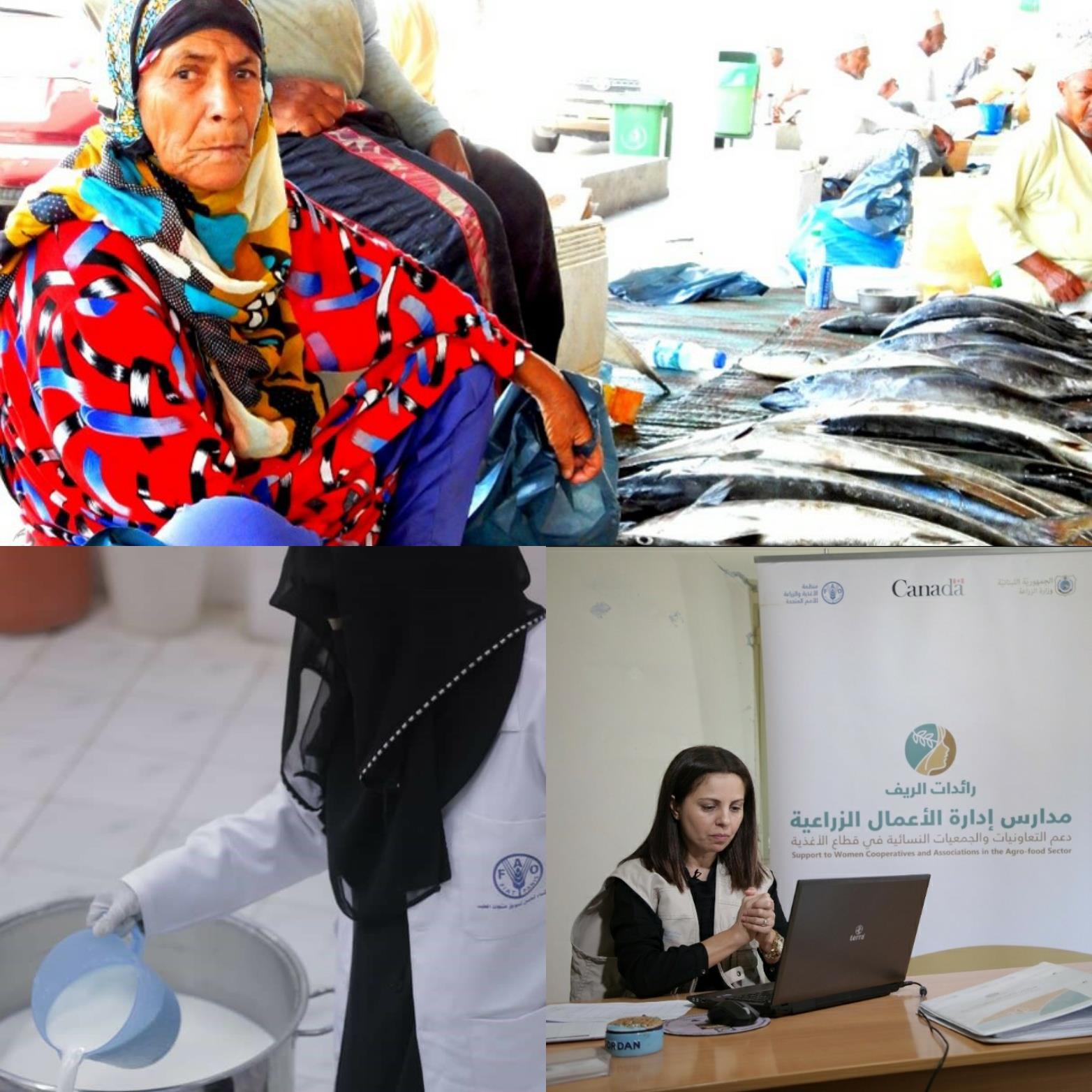FAO celebrates Women’s International Day 2021

8 March 2021, Cairo - As every year, International Women’s Day provides an opportunity to celebrate the progress achieved in promoting gender equality and women’s empowerment, reflect on setbacks and emerging challenges, and call for change about the inequalities that persist.
This year’s theme, dedicated to “Women in leadership: Achieving an equal future in a COVID-19 world”, celebrates the tremendous efforts being made by women and girls in facing the pandemic. In all countries, women have stood at the front lines of the COVID-19 crisis, as health care workers, caregivers, innovators, community organizers, and as some of the most exemplary and effective leaders in responding to the crisis.
The pandemic has highlighted the centrality of women’s contributions and the society’s reliance on their work - particularly their unpaid care and domestic work. At the same time, it has also exposed the disproportionate burdens that women and girls carry in times of crisis, and the structural inequalities that still exist across every sphere.
Persisting and emerging challenges to rural women’s empowerment in the Near East and North Africa
In addition to the pre-existing systemic barriers to rural women’s and girls’ participation and leadership, new barriers have emerged as a result of the pandemic.
Their agricultural activities have been affected to a greater extent than those of men – which is particularly worrying, given that they were already at a disadvantage in accessing productive assets and resources. Across the region, women represent less than 5 per cent of all agricultural land holders (FAO, 2018) and a very small portion of real estate owners: 6.4 per cent in Tunisia, 4.4 percent in Morocco, 4.1 percent in Algeria, 4 percent in Egypt and 3 percent in Jordan. In 75 percent of the cases, this real estate consists of small-scale farms (IEMED, 2017).
Due to their over-representation in the informal and the insecure types of agricultural employment, rural women are also more likely than men to have lost their jobs as result of the pandemic. The pandemic is expected to result in the loss of 1.7 million jobs in the Arab region, most of which in sectors dominated by women (UNESCWA 2020). This is extremely problematic, considering that, already before the COVID-19 outbreak, the region registered one the weakest female labour force participation rates globally, with a rate of 20 percent (ILO estimate, 2019).
With family members spending more time at home, women’s workload and time poverty increased significantly, exacerbating one of the key factors limiting their equal participation in the labour market and engagement in rural organizations and institutions. The pandemic also had a detrimental impact on women’s security and freedom from violence. In many cases, lockdown measures - meant to keep populations safe from the disease - have increased women’s vulnerability to domestic violence and abuse, already experienced by about 37 percent of women in the Arab countries (UN ESCWA and UN Women, 2020).
For many women and girls in the region, these challenges are further compounded by the protracted conflicts and the political and economic instability that many countries were facing even before the outbreak of the pandemic.
FAO’s commitment to promote women’s voice and leadership
FAO is committed to promoting rural women’s participation and leadership in rural institutions and organizations, and to ensuring that women and girls have equal opportunities to influence the decision-making processes that impact on their lives, as reiterated in the new corporate Policy on Gender Equality 2020-30.
Several projects and programmes in the Near East and North Africa region demonstrate this commitment. In Lebanon, for example, the project “Support to Women's Cooperatives and Associations in the Agri-food Sector in Lebanon", funded by the Government of Canada, was explicitly designed to strengthen women’s cooperatives, associations and informal groups, and provide them with the technical, financial and managerial skills needed to thrive in the agricultural sector. As of March 2021, 577 women and 44 men from 261 cooperatives and women groups were trained thanks to the projects and through an articulated online capacity development programme.
In Oman, FAO is implementing the project “Capacity Development of Coastal Women Associations on Small-Scale Invertebrate Fishery in Al Wusta, in alignment with the gender equality principles of the Voluntary Guidelines for Securing Sustainable Small-Scale Fisheries. The intervention aims to support the establishment of women’s associations, and to train and equip them with appropriate tools and knowledge. The final objective is not only to increase women’s productivity and the profitability of their businesses, but also to improve their voice and socio-economic status within their households and communities.
Through the project “Supporting Resilient Livelihoods and Food Security in Yemen Joint Programme (ERRY II)”, co-funded by the European Union (EU) and the Swedish International Development Cooperation Agency (SIDA), FAO supports women dairy producers and entrepreneurs in in six vulnerable governorates across the country. The intervention succeeded in establishing or rehabilitating dairy processing units to be run by women’s groups. All beneficiaries received technical, marketing and business training, which resulted in increased dairy production and income-generating capacity of all women’s groups. Not only: the project succeeded in nurturing women’s self-confidence and growing a network of female farmers and entrepreneurs.
“I feel independent”, declared one of the women entrepreneurs who participated in the Yemen’s project. This clearly shows the importance of designing and implementing gender-transformative agricultural projects and programmes that address the root causes of gender inequalities - including discriminatory social norms and attitudes - and create space for women to lead, in all sectors.
